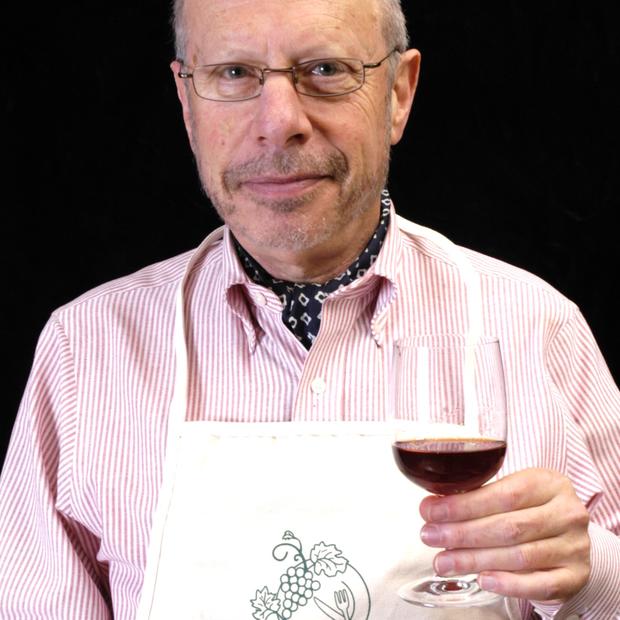Hard to believe it's been over 20 years since Charles and Rose Ann Finkel opened their Pike Pub & Brewery. It's such a fixture at the Market, you'd think it's been there forever, but there was a time, not that long ago, when fewer than half a dozen national breweries supplied the nation with lawnmower beer while half a dozen artisans and idealists were brewing tiny lots of craft beer. It was a classic struggle between industrial, bottom-fermented lagers and flavorful, top-fermented ales, between standardization and individuality. In the end, as we know, it was the consumers who won.
Into that fomenting vat of yeast and mash stepped the Finkels, who had decades of experience navigating the currents of beverage sales. Back in Oklahoma, Charles had been an early champion of Chateau Ste. Michelle wines and was hired to run the company's national sales effort. (His business partner Paul Shipman came along to manage Ste. Michelle's marketing.) Later, Charles started a company called Merchant du Vin, which, despite its name, imported nothing but craft beer. (Shipman went on to operate Red Hook.)
Then the Finkels started a tiny craft brewery, the Pike, on Western Avenue, moved into the Market, expanded the business, eventually sold everything, "retired," and embarked on bicycle trips to the food capitals of Europe and Asia.
But four years ago, the Finkels ended up buying the place back. They hired a serious brewer master, Drew Cluley, and quickly restored Pike Brewery to prominence. The bustling, family-friendly pub now features over three dozen taps at three bars dispensing their own brews and a few "guest drafts." In the brewery down below, several bourbon barrels (filled with Entire, an intense, barrel-aged stout) stand alongside the stainless steel trappings of a craft brewery that produces about 10,000 barrels a year. (At 35.5-gallons a barrel, that's about half a million six-packs, but Budweiser probably spills more than that.)
"When I was a kid, I didn'êt want to be a police officer, firefighter, or astronaut, I wanted to become a Catholic monk. Not just any old monk, but one that brewed beer," Charles says, in a riff that's become something of a trademark. "At around age 10, I came out to my parents." (Pause, wait for it.) 'ê 'But Charles,' they said, 'we'êre Jewish!' "
Merchant du Vin eventually distributed Orval Trappist Beer, the best-known of the Belgian abbey ales, and one project the Finkels undertook after they reacquired the Pike was to brew a Belgian-style ale of their own. Since 2007, they've sold it as Monk'ês Uncle Tripel, and it pairs beautifully with local shellfish (mussels and clams from Penn Cove, farmed prawns from Taylor Shellfish) in a spicy coconut sauce. Worth mentioning that all of the proteins served at the Pike are now sourced to strict standards; the brewpub won a Slow Food award last year for its commitment to sustainability.
The Pike brews a dozen ales; the ruby-colored Kilt Lifter Scotch Ale is its bestseller. Cluley uses a little peated Scotch whisky malt in the mix to add a subtle, smoky flavor. Medium-hopped, with 6.5% alcohol, it's a great drink with Pike's smoked salmon plate. (The salmon comes from Sol Amon's Pure Food Fish in the Market; the bread is a dense and chewy deli rye from Grand Central Bakery.) The Kilt Lifter is also the beverage of choice for a braised bratwurst made by another Market stalwart, Uli Lengenberg of Uli's Famous Sausage. The Pike's executive chef, Gary Marx, serves it with a homemade apple sauerkraut, horseradish-flavored mashed potatoes, and housemade Extra Stout mustard. It's a successfully re-imagined local version of a traditional choucroûte garnie, very much in the spirit of the original Alsatian brasseries (which were, of course, nothing more than brewpubs).
The Kilt Lifter has a delightful tang and a sprightly mouthfeel. Pike brews some 2,600 barrels a year, a quarter of it sold at the brewpub. Half the rest goes to pubs and taverns around town, while some 40,000 six-packs are sold in groceries and supermarkets. It's one of the most recognizable brands in the Northwest, though several others (Red Hook ESB and Widmer Hefeweizen) have formed an unholy alliance with the big boys to get national distribution. Among the pioneer local artisans who continue to flourish, Hale's, Georgetown and Elysian are right in there with Pike.
Rose Ann Finkel is one of Seattle's most prominent foodies. She and a couple of pals owned Truffles, a specialty food store in Laurelhurst; she was chief operating officer of Merchant du Vin, started Seattle's Slow Food convivium, and is a member of Les Dames d'Escoffier. For his part, in addition to a passion for craft beer and fine wine, Charles has a remarkable talent as a graphic designer, specializing in marketing materials for breweries. He's also a writer and photographer; his design shop website, finkeldesign.com, is a hoot.
The instantly recognizable blazons of Charles's brewery logos, with their wings, fireworks and dazzling typefaces crowded into a diamond-shaped label, invoke unpretentious, giddy refreshment; they're as iconic as the Tupelo cherubs (on the ceilings of Italian churches), promising eternal redemption. Come to think of it, there's a lot of redemption on the plate (and in the glass) at the Pike as well.
If you go: Pike Brewery, 1415 First Ave., Seattle, 206-622-6044, www.pikebrewing.com. Open 11am-midnight daily.


